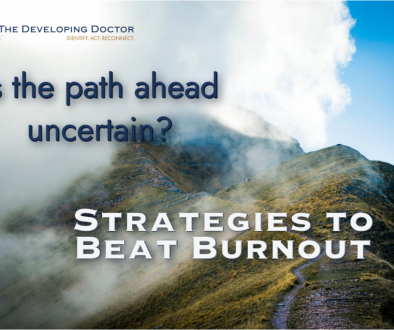Balancing Self-Care with Patient Care
Understanding Healthcare Provider Burnout
You pulled all-nighters. Missed family events. Stayed up longer than should be allowed. All in pursuit of our calling. You told yourself it was worth. That you’d be happy after the next big milestone. Now, you are wondering if it really was worth it.
If you are tired of the sacrifice, mountains of paperwork, and lack of a personal life, you’re not alone. Here’s the good news: being an exceptional healthcare provider and living a fulfilling, balanced life are not mutually exclusive. In fact, they go hand in hand. Let’s dive into how you can reclaim your time, energy, and passion while thriving in your role.
The Connection Between Self-Care and Quality Patient Care
Think about it for a moment. As healthcare providers, we tell our patients about the importance of self-care, yet many of us fail to follow our own advice. Why is that? Somewhere along the way, we’ve internalized the idea that being a great doctor, nurse, or pharmacist means sacrificing our well-being. But the reality is, the best patient care comes from providers who are well-rested, recharged, and fulfilled.
Burnout isn’t a badge of honor. It’s not a job requirement. It’s a symptom of a failing healthcare system. So instead of wearing exhaustion as a sign of dedication, let’s shift our mindset to prioritize self-care as a cornerstone of good medicine.
Evidence-Based Strategies for Preventing Healthcare Provider Burnout
The most effective and fulfilled healthcare providers aren’t martyrs—they’re strategists. Here are a few actionable steps you can take to follow their lead:
- Protect Your Time: Be intentional about how you spend your hours. This could mean blocking a 10-minute buffer between patients or carving out time for a proper lunch.
- Set Boundaries: Boundaries are not selfish; they are essential. Learn to say no when necessary and communicate your limits clearly.
- Delegate Smartly: Delegation isn’t a sign of weakness; it’s smart medicine. Let your team handle tasks that don’t require your expertise, so you can focus on where you shine.
- Recharge Without Guilt: Whether it’s a 25-minute walk, a five-minute meditation, taking a vacation, or simply savoring your lunch, prioritize hobbies and activities that rejuvenate you.
Small Changes, Big Impact
Healthcare is a calling, but it’s not meant to drown you. Remember, you are not a bottomless well of energy. The version of you that is well-rested, hydrated, and present is the one your patients truly need and deserve. Here are a few small changes you can start making today:
- Take a walk during your break instead of staying glued to your desk.
- Text a loved one and commit to being home for dinner at a specific time.
- Actually eat your lunch—without checking your inbox or charts.
These may seem like minor changes, but over time, they can transform how you feel about your work and your life.
Implementing Sustainable Self-Care Habits
Let’s be clear: burnout isn’t a personal failure—it’s a systemic issue. But while we work toward larger changes in the healthcare system, we can take steps to protect ourselves and our well-being. When you prioritize self-care, you not only improve your quality of life but also elevate the care you provide to your patients.
Building a Supportive Healthcare Environment
If this message resonates with you, you’re not alone. Share this post with a colleague who needs to hear it. Commit to one small change this week, take better care of yourself, and encourage others to do the same. Together, we can create a healthier, happier future in healthcare—one small step at a time.





